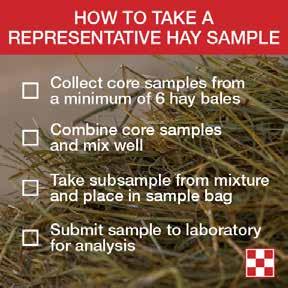
1 minute read
Is Serology the Right Test for Asymptomatic S. equi carriage?
Is Serology the Right Test for Asymptomatic S. equi Carriers?
Veterinarians might not be able to rely on serological testing for Streptococcus equi, which causes strangles, as a way to identify asymptomatic carriers.
Advertisement
Asymptomatic carriage within the guttural pouch is considered a major factor in the persistence of this highly infectious disease.
Researchers performed a retrospective study to investigate the sensitivity of serological testing for antibodies against S. equi subspecies equi antigens A and C in detecting carriers from 287 horses arriving at a welfare charity quarantine unit that underwent microbiological sampling of guttural pouches. They reviewed the serological testing results and found 9 (3.1%) horses were found to be guttural pouch carriers on microbiology, and 35 (12.2%) horses were seropositive (had at least one ELISA OD value ≥0.5). Of the 35 seropositive horses, 1 (2.9%) had evidence of S. equi in a guttural pouch lavage. Of the 252 horses with OD values <0.5, 8 (3.2%) had evidence of S. equi in guttural pouch samples. Only 1 (11%) of the 9 horses found to be a carriers was seropositive at a cut-off of OD ≥ 0.5, but lowering the cut-off to OD ≥ 0.3 identified 2 additional carriers.
Serology is a common way of identifying asymptomatic carriers of S. equi, but this study means veterinarians cannot rely on seronegativity to antigens A and C when determining if a horse is a chronic carrier of S. equi. The researchers said the most reliable method for determining carriage is microbiological sampling.
For more information:
Durham AE, Kemp-Symonds J. Failure of serological testing for antigens A and C of Streptococcus equi subspecies equi to identify guttural pouch carriers. Equine Vet J. 2020 May 6 (Epub ahead of print). https://beva.onlinelibrary.wiley.com/doi/10.1111/evj.13276







